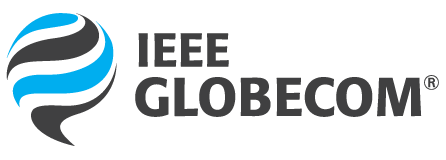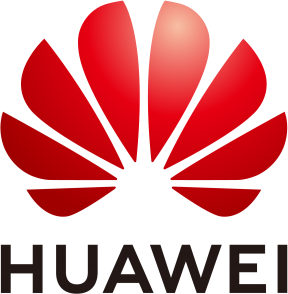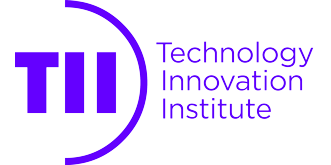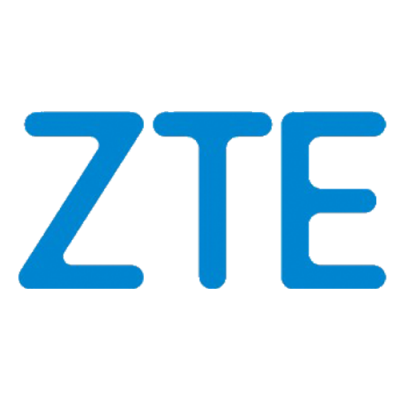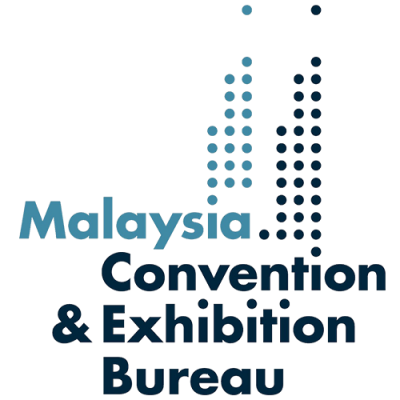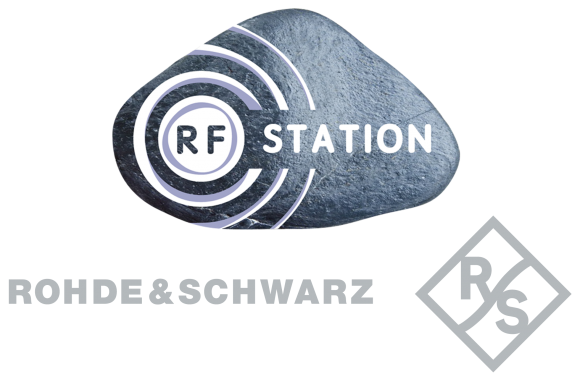- Peiying Zhu, Huawei
- Mathias Fink, ESPCI Paris
- Mérouane Debbah, TII
- Muriel Médard, MIT
- Ed Tiedemann, Qualcomm
- Lajos Hanzo, University of Southampton
- Harald Haas, University of Strathclyde/Glasgow
- Li Tian, ZTE
PEIYING ZHU
Title: Coming soon.
Abstract: Coming soon.
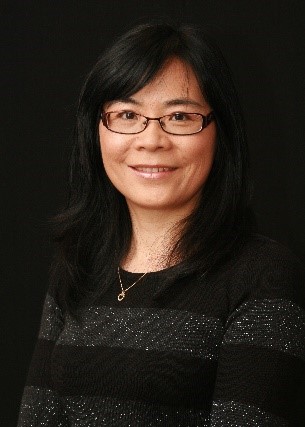 Bio: Peiying Zhu, Senior Vice President of Wireless Research, is a Huawei Fellow, IEEE Fellow and Fellow of Canadian Academy of Engineering. She is currently leading 6G wireless research and standardization in Huawei. The focus of her research is advanced radio access technologies. She is actively involved in 3GPP and IEEE 802 standards development. She has been regularly giving talks and panel discussions on 5G/6G vision and enabling technologies. She led the team to contribute significantly to 5G technologies and standardization. Many technologies developed by the team have been adopted into 5G standards and implemented in 5G products. She served as the guest editor for IEEE Signal processing magazine special issue on the 5G revolution and IEEE JSAC on Deployment Issues and Performance Challenges for 5G.
Bio: Peiying Zhu, Senior Vice President of Wireless Research, is a Huawei Fellow, IEEE Fellow and Fellow of Canadian Academy of Engineering. She is currently leading 6G wireless research and standardization in Huawei. The focus of her research is advanced radio access technologies. She is actively involved in 3GPP and IEEE 802 standards development. She has been regularly giving talks and panel discussions on 5G/6G vision and enabling technologies. She led the team to contribute significantly to 5G technologies and standardization. Many technologies developed by the team have been adopted into 5G standards and implemented in 5G products. She served as the guest editor for IEEE Signal processing magazine special issue on the 5G revolution and IEEE JSAC on Deployment Issues and Performance Challenges for 5G.
Prior to joining Huawei in 2009, Peiying was a Nortel Fellow and Director of Advanced Wireless Access Technology in the Nortel Wireless Technology Lab. She led the team and pioneered research and prototyping on MIMO-OFDM and Multi-hop relay, which were adopted into LTE standards and 4G products. Dr. Zhu has more than 200 granted patents.
MATHIAS FINK
Title: Coming soon.
Abstract: Coming soon.
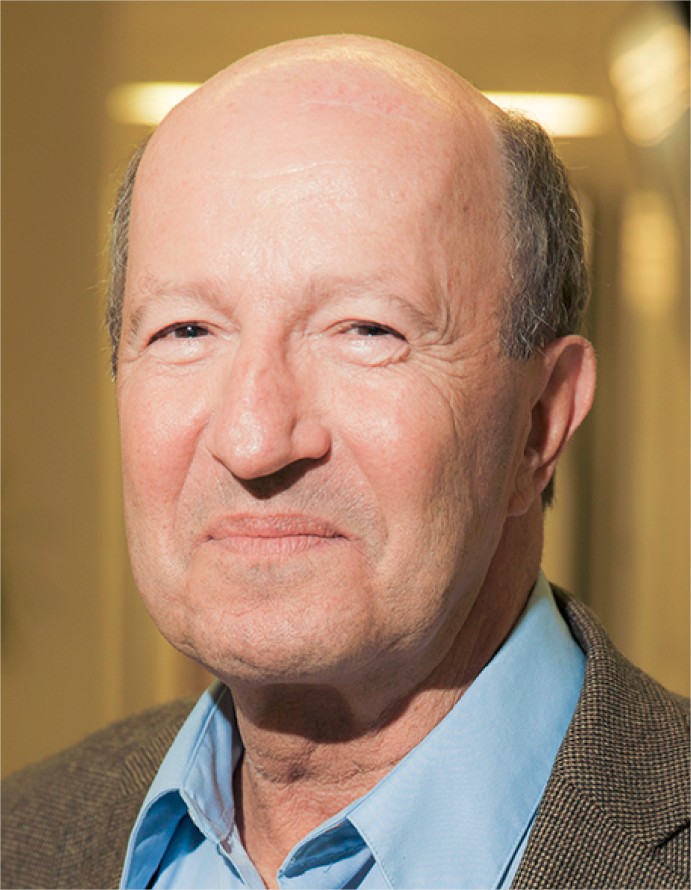 Bio: Mathias Fink is the George Charpak Professor at the Ecole Superieure de Physique et de Chimie Industrielles de la Ville de Paris (ESPCI Paris), where he founded the Langevin Institute. He is a member of the French Academy of Science and of the National Academy of Technologies of France. In 2008, he was elected at the College de France on the Chair of Technological Innovation.
Bio: Mathias Fink is the George Charpak Professor at the Ecole Superieure de Physique et de Chimie Industrielles de la Ville de Paris (ESPCI Paris), where he founded the Langevin Institute. He is a member of the French Academy of Science and of the National Academy of Technologies of France. In 2008, he was elected at the College de France on the Chair of Technological Innovation.
Mathias Fink’s area of research is concerned with the propagation of waves in complex media. His current research interests include wave control in complex media, time-reversal in physics, metamaterials, telecommunications, super-resolution, medical ultrasonic imaging, multiwave imaging. With his colleagues, he pioneered different inventions in the field of telecommunications (Time-reversal processing and Reconfigurable intelligent surfaces) and in medical imaging (ultrafast ultrasonic imaging, transient elastography, shear wave Elastography, supersonic shear imaging). 7 start-up companies with more than 400 employees have been created from his research (Echosens, Sensitive Object, Supersonic Imagine, Time Reversal Communications, CardiaWave, Austral DX, and GreenerWave).
MÉROUANE DEBBAH
Title: Coming soon.
Abstract: Coming soon.
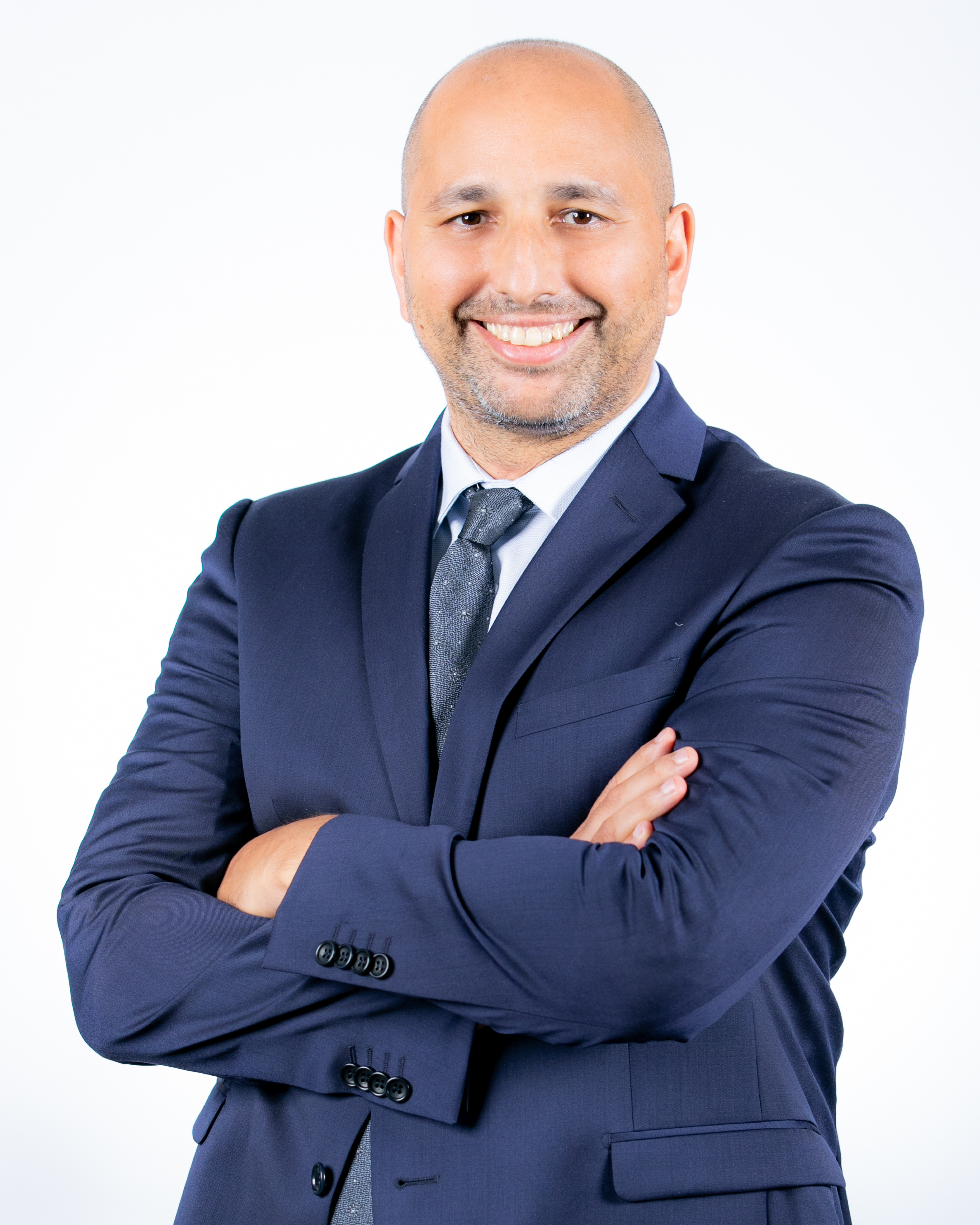 Bio: Mérouane Debbah is Chief Researcher at the Technology Innovation Institute in Abu Dhabi. He is a Professor at Centralesupelec (France) and an Adjunct Professor with the Department of Machine Learning at the Mohamed Bin Zayed University of Artificial Intelligence in Abu Dhabi. He received the M.Sc. and Ph.D. degrees from the Ecole Normale Supérieure Paris-Saclay, France. He was with Motorola Labs, Saclay, France, from 1999 to 2002, and then with the Vienna Research Center for Telecommunications, Vienna, Austria, until 2003. From 2003 to 2007, he was an Assistant Professor with the Mobile Communications Department, Institut Eurecom, Sophia Antipolis, France. In 2007, he was appointed Full Professor at CentraleSupelec, Gif-sur-Yvette, France. From 2007 to 2014, he was the Director of the Alcatel-Lucent Chair on Flexible Radio. From 2014 to 2021, he was Vice-President of the Huawei France Research Center. He was jointly the director of the Mathematical and Algorithmic Sciences Lab as well as the director of the Lagrange Mathematical and Computing Research Center. Since 2021, he is leading the AI & Digital Science Research centers at the Technology Innovation Institute. He has managed 8 EU projects and more than 24 national and international projects. His research interests lie in fundamental mathematics, algorithms, statistics, information, and communication sciences research. He holds more than 40 patents. He is an IEEE Fellow, a WWRF Fellow, a Eurasip Fellow, an AAIA Fellow, an Institut Louis Bachelier Fellow and a Membre émérite SEE.
Bio: Mérouane Debbah is Chief Researcher at the Technology Innovation Institute in Abu Dhabi. He is a Professor at Centralesupelec (France) and an Adjunct Professor with the Department of Machine Learning at the Mohamed Bin Zayed University of Artificial Intelligence in Abu Dhabi. He received the M.Sc. and Ph.D. degrees from the Ecole Normale Supérieure Paris-Saclay, France. He was with Motorola Labs, Saclay, France, from 1999 to 2002, and then with the Vienna Research Center for Telecommunications, Vienna, Austria, until 2003. From 2003 to 2007, he was an Assistant Professor with the Mobile Communications Department, Institut Eurecom, Sophia Antipolis, France. In 2007, he was appointed Full Professor at CentraleSupelec, Gif-sur-Yvette, France. From 2007 to 2014, he was the Director of the Alcatel-Lucent Chair on Flexible Radio. From 2014 to 2021, he was Vice-President of the Huawei France Research Center. He was jointly the director of the Mathematical and Algorithmic Sciences Lab as well as the director of the Lagrange Mathematical and Computing Research Center. Since 2021, he is leading the AI & Digital Science Research centers at the Technology Innovation Institute. He has managed 8 EU projects and more than 24 national and international projects. His research interests lie in fundamental mathematics, algorithms, statistics, information, and communication sciences research. He holds more than 40 patents. He is an IEEE Fellow, a WWRF Fellow, a Eurasip Fellow, an AAIA Fellow, an Institut Louis Bachelier Fellow and a Membre émérite SEE.
Mérouane was a recipient of the ERC Grant MORE (Advanced Mathematical Tools for Complex Network Engineering) from 2012 to 2017. He was a recipient of the Mario Boella Award in 2005, the IEEE Glavieux Prize Award in 2011, the Qualcomm Innovation Prize Award in 2012, the 2019 IEEE Radio Communications Committee Technical Recognition Award and the 2020 SEE Blondel Medal. He received more than 25 best paper awards, among which the 2007 IEEE GLOBECOM Best Paper Award, the Wi-Opt 2009 Best Paper Award, the 2010 Newcom++ Best Paper Award, the WUN CogCom Best Paper 2012 and 2013 Award, the 2014 WCNC Best Paper Award, the 2015 ICC Best Paper Award, the 2015 IEEE Communications Society Leonard G. Abraham Prize, the 2015 IEEE Communications Society Fred W. Ellersick Prize, the 2016 IEEE Communications Society Best Tutorial Paper Award, the 2016 European Wireless Best Paper Award, the 2017 Eurasip Best Paper Award, the 2018 IEEE Marconi Prize Paper Award, the 2019 IEEE Communications Society Young Author Best Paper Award, the 2021 Eurasip Best Paper Award, the 2021 IEEE Marconi Prize Paper Award, the 2022 IEEE Communications Society Outstanding Paper Award, the 2022 ICC Best paper Award, the 2022 IEEE GLOBECOM Best Paper Award, 2022 IEEE TAOS TC Best GCSN Paper Award, the 2022 IEEE International Conference on Metaverse Best Paper Award as well as the Valuetools 2007, Valuetools 2008, CrownCom 2009, Valuetools 2012, SAM 2014, and 2017 IEEE Sweden VT-COM-IT Joint Chapter best student paper awards. He is an Associate Editor-in-Chief of the journal Random Matrix: Theory and Applications. He was an Associate Area Editor and Senior Area Editor of the IEEE TRANSACTIONS ON SIGNAL PROCESSING from 2011 to 2013 and from 2013 to 2014, respectively. From 2021 to 2022, he served as an IEEE Signal Processing Society Distinguished Industry Speaker
MURIEL MEDARD
Title: Coming soon.
Abstract: Coming soon.
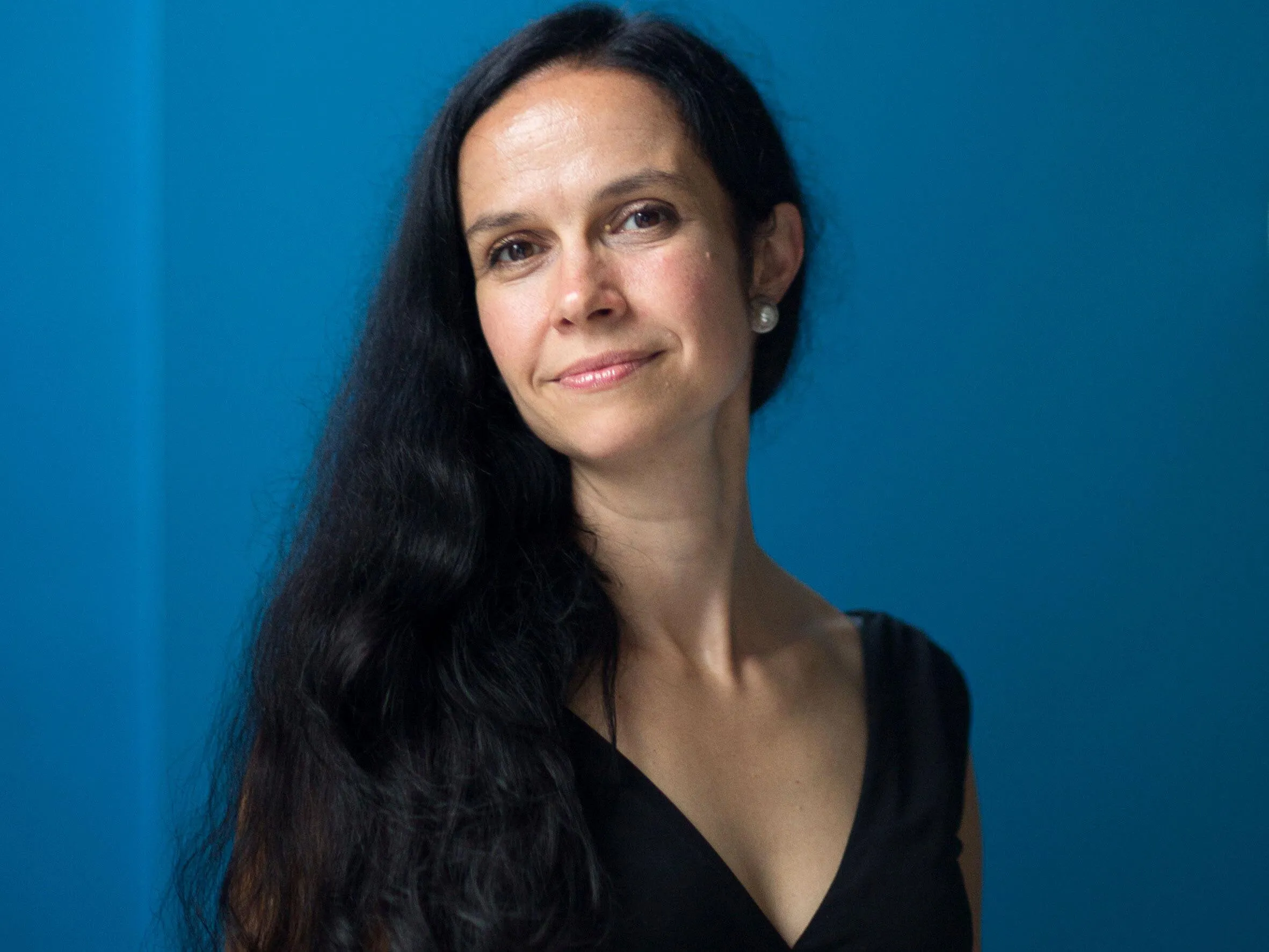 Bio: Muriel Médard is the NEC Professor of Software Science and Engineering in the School of Engineering at MIT and a Professor in the Electrical Engineering and Computer Science (EECS) Department at MIT. She leads the Network Coding and Reliable Communications Group in the Research Laboratory for Electronics at MIT and Chief Scientist for Steinwurf, which she has co-founded. She obtained three Bachelors degrees, as well as her M.S. and Sc.D, all from MIT. Muriel is a Member of the US National Academy of Engineering (elected 2020), a Member of the German National Academy of Sciences Leopoldina (elected 2022), a Fellow of the US National Academy of Inventors (elected 2018), American Academy of Arts and Sciences (elected 2021), and a Fellow of the Institute of Electrical and Electronics Engineers (elected 2008). She holds Honorary Doctorates from the Technical University of Munich (2020) and from The University of Aalborg (2022).
Bio: Muriel Médard is the NEC Professor of Software Science and Engineering in the School of Engineering at MIT and a Professor in the Electrical Engineering and Computer Science (EECS) Department at MIT. She leads the Network Coding and Reliable Communications Group in the Research Laboratory for Electronics at MIT and Chief Scientist for Steinwurf, which she has co-founded. She obtained three Bachelors degrees, as well as her M.S. and Sc.D, all from MIT. Muriel is a Member of the US National Academy of Engineering (elected 2020), a Member of the German National Academy of Sciences Leopoldina (elected 2022), a Fellow of the US National Academy of Inventors (elected 2018), American Academy of Arts and Sciences (elected 2021), and a Fellow of the Institute of Electrical and Electronics Engineers (elected 2008). She holds Honorary Doctorates from the Technical University of Munich (2020) and from The University of Aalborg (2022).
Muriel was awarded the 2022 IEEE Kobayashi Computers and Communications Award. She received the 2017 IEEE Communications Society Edwin Howard Armstrong Achievement Award and the 2016 IEEE Vehicular Technology James Evans Avant Garde Award. Muriel was co-winner of the MIT 2004 Harold E. Egerton Faculty Achievement Award and was named a Gilbreth Lecturer by the US National Academy of Engineering in 2007. She received the 2019 Best Paper award for IEEE Transactions on Network Science and Engineering, the 2018 ACM SIGCOMM Test of Time Paper Award, the 2009 IEEE Communication Society and Information Theory Society Joint Paper Award, the 2009 William R. Bennett Prize in the Field of Communications Networking, the 2002 IEEE Leon K. Kirchmayer Prize Paper Award, as well as nine conference paper awards. Most of her prize papers are co-authored with students from her group.
Muriel currently serves as the Editor-in-Chief of the IEEE Transactions on Information Theory and served previously as Editor in Chief of the IEEE Journal on Selected Areas in Communications. She was elected president of the IEEE Information Theory Society in 2012, and serves on its board of governors, having previously served for eleven years. Muriel has supervised over 40 master students, over 20 doctoral students and over 25 postdoctoral fellows. She received the inaugural MIT Postdoctoral Association Mentoring Award in 2022, the inaugural MIT EECS Graduate Student Association Mentor Award, voted by the students in 2013. She set up the Women in the Information Theory Society (WithITS) and Information Theory Society Mentoring Program, for which she was recognized with the 2017 Aaron Wyner Distinguished Service Award.
Muriel has over sixty US and international patents awarded, the vast majority of which have been licensed or acquired. For technology transfer, she has co-founded CodeOn, for intellectual property licensing. and Steinwurf, for reliable and low-latency networking. She serves on the Nokia Bell Labs Technical Advisory Board.
ED TIEDEMANN
Title: Coming soon.
Abstract: Coming soon.
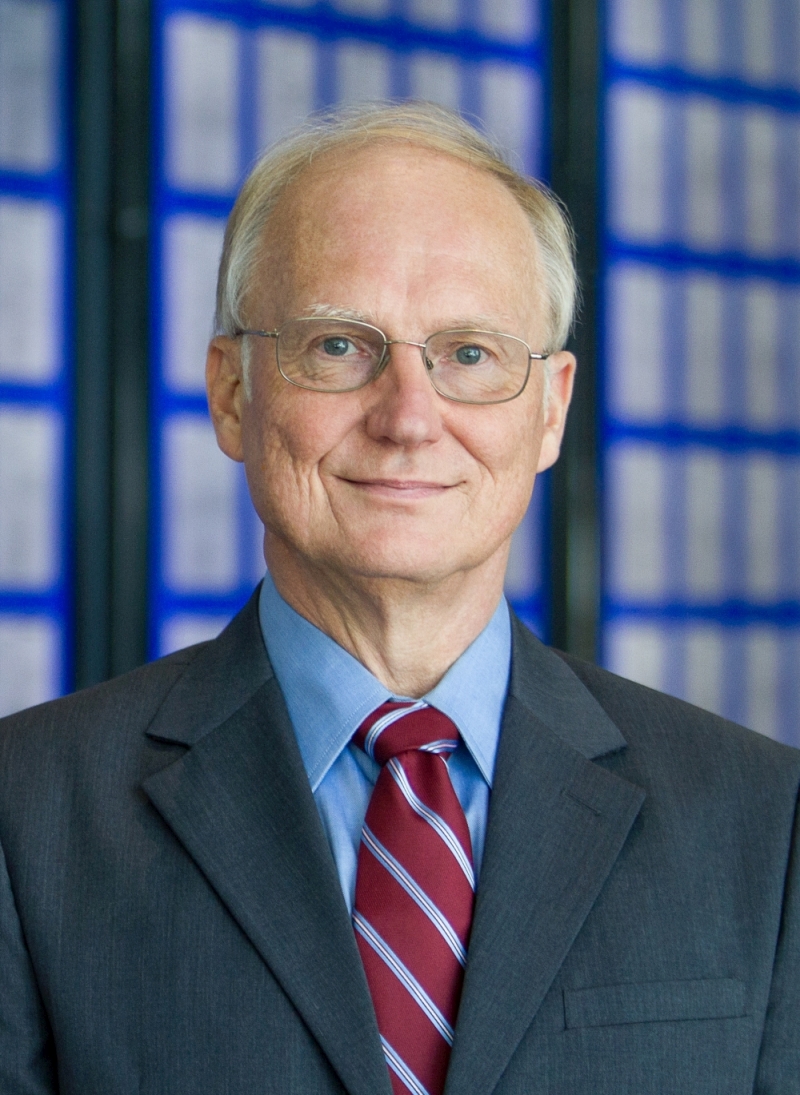 Bio: Edward G. Tiedemann, Jr. is an IEEE Fellow, a Qualcomm Fellow, and a Senior Vice President of Engineering of Qualcomm Technologies, Inc. He leads Qualcomm’s worldwide standardization and industry organization activities. Dr. Tiedemann was instrumental in the design and development of the TIA/EIA/IS-95 CDMA system, also called cdmaOne™. He has been active in every G since then. Dr. Tiedemann has almost 300 granted US patents and has participated in many papers, conference lectures, and industry panels. He is interested in multiple topics in communications including 5G and beyond, IoT, and V2x.
Bio: Edward G. Tiedemann, Jr. is an IEEE Fellow, a Qualcomm Fellow, and a Senior Vice President of Engineering of Qualcomm Technologies, Inc. He leads Qualcomm’s worldwide standardization and industry organization activities. Dr. Tiedemann was instrumental in the design and development of the TIA/EIA/IS-95 CDMA system, also called cdmaOne™. He has been active in every G since then. Dr. Tiedemann has almost 300 granted US patents and has participated in many papers, conference lectures, and industry panels. He is interested in multiple topics in communications including 5G and beyond, IoT, and V2x.
Tiedemann holds the Ph.D. degree from MIT where he worked in the areas of queueing theory and communications networks. He holds the Master of Science degree from Purdue University and the Bachelor of Science degree from Virginia Polytechnic Institute and State University (Va Tech).
Tiedemann currently is a member of the Next G Alliance Research Council, the Purdue University Semiconductor Degrees Leadership Board, the Advisory Board of the Purdue University School of Electrical and Computer Engineering, the Hong Kong University of Science and Technology (HKUST) School of Engineering Advisory Committee, and the International Advisory Panel of the Singapore Future Communications Research & Development Programme. He also serves as the IEEE Communications Society as Director, Standards Development. Dr. Tiedemann is past chairman of the Advisory Board of the College of Engineering at Virginia Polytechnic Institute and State University (Va Tech) and was General Chair of IEEE GLOBECOM 2015. He is also a member of the Board of Advisors of the Peabody Essex Museum and a member of the Board of Trustees of the Concord Museum. He has received numerous recognitions, including the Robert M. Walp Industry Humanitarian Award from the IEEE Communications Society.
LAJOS HANZO
Title: Coming soon.
Abstract: Coming soon.
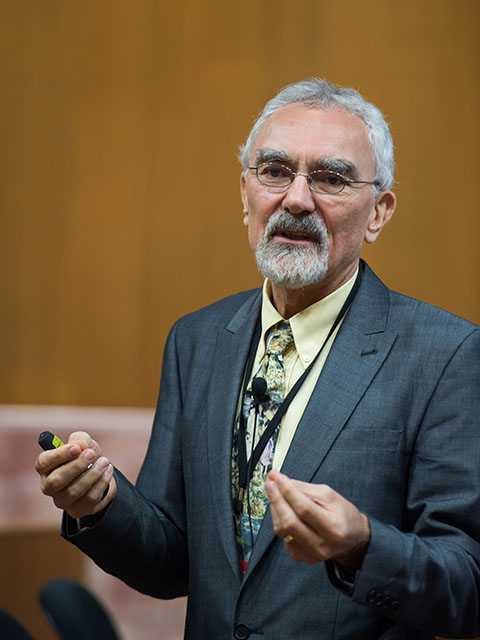 Bio: Lajos Hanzo
Bio: Lajos Hanzo
(http://www-mobile.ecs.soton.ac.uk,
https://en.wikipedia.org/wiki/Lajos_Hanzo)
(FIEEE'04) received his Master degree and Doctorate in 1976 and 1983, respectively from the Technical University (TU) of Budapest. He was also awarded the Doctor of Sciences (DSc) degree by the University of Southampton (2004) and Honorary Doctorates by the TU of Budapest (2009) and by the University of Edinburgh (2015). He is a Foreign Member of the Hungarian Academy of Sciences and a former Editor-in-Chief of the IEEE Press. He has served several terms as Governor of both IEEE ComSoc and of VTS. He has published 2000+ contributions at IEEE Xplore, 19 Wiley-IEEE Press books and has helped the fast-track career of 123 PhD students. Over 40 of them are Professors at various stages of their careers in academia and many of them are leading scientists in the wireless industry. He is also a Fellow of the Royal Academy of Engineering (FREng), of the IET and of EURASIP.
HARALD HAAS
Title: Coming soon.
Abstract: Coming soon.
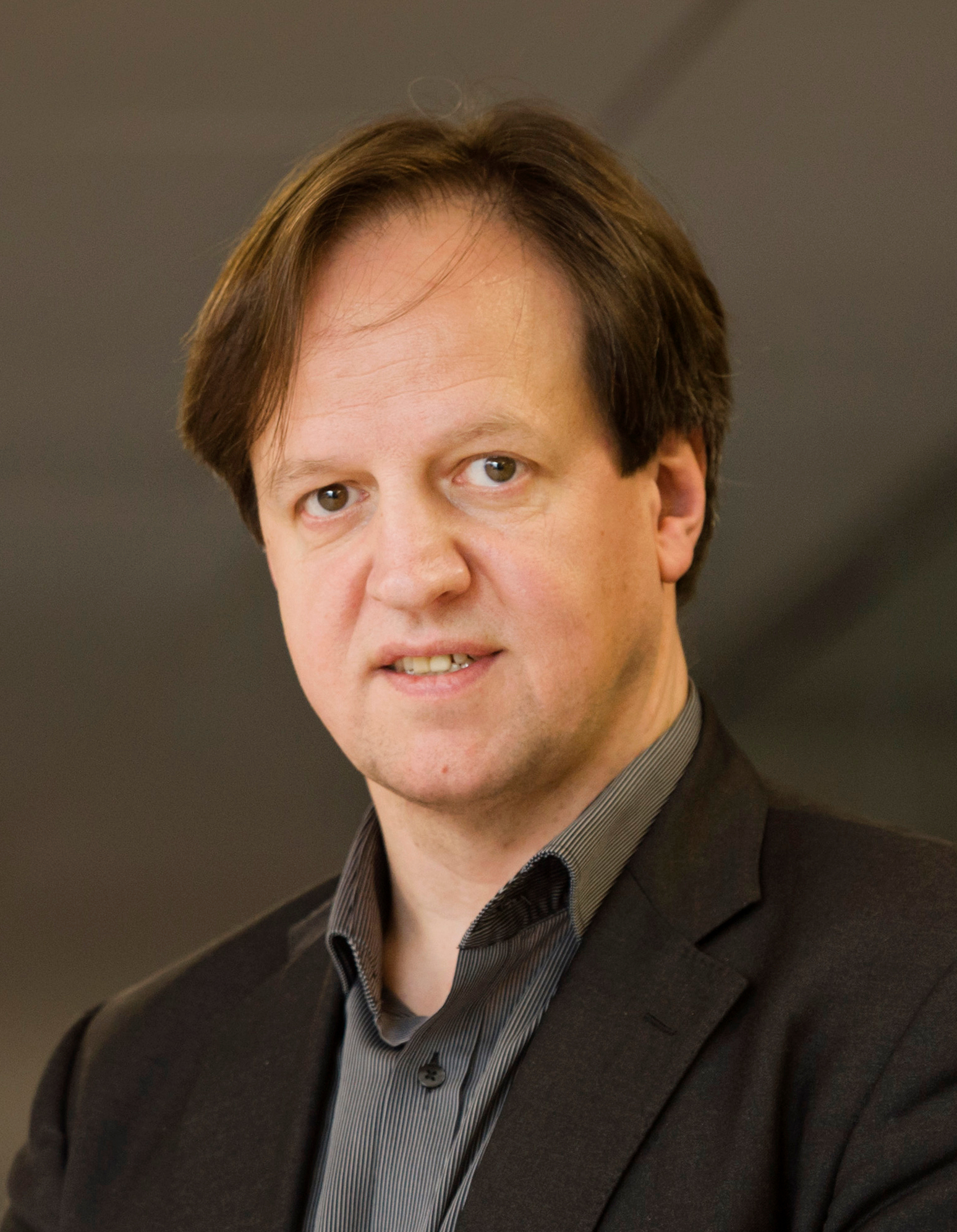 Bio: Harald Haas received his Ph.D. degree from The University of Edinburgh in 2001. He is a Distinguished Professor of Mobile Communications at the University of Strathclyde/Glasgow, Visiting Professor at the University of Edinburgh, and the Director of the LiFi Research and Development Centre (LRDC). Prof Haas founded pureLiFi Ltd., where holds the position of Chief Scientific Officer (CSO). His most recent research interests are in combining physics and communication theory towards designing secure, high-speed and net-zero wireless multi-user access networks including distributed x-haul networks using new spectrum, in particular ultraviolet, visible, and infrared light. He has co-authored more than 650 conference and journal papers and holds more than 45 patents. He has been listed as highly cited researcher by Clarivate/Web of Science since 2017. Prof. Haas has delivered two TED talks which have been watched online more than 5.5 million times. In 2016, he was the recipient of the Outstanding Achievement Award from the International Solid State Lighting Alliance. In 2017 he was awarded a Royal Society Wolfson Research Merit Award. In 2019 he received the IEEE Vehicular Society James Evans Avant Garde Award. In 2021, he received the Enginuity The Connect Places Innovation Award. In 2022 he was the recipient of a Humboldt Research Award for his research achievements to date. He is a Fellow of the IEEE, a Fellow of the Royal Academy of Engineering (RAEng), a Fellow of the Royal Society of Edinburgh (RSE), and a Fellow of the Institution of Engineering and Technology (IET).
Bio: Harald Haas received his Ph.D. degree from The University of Edinburgh in 2001. He is a Distinguished Professor of Mobile Communications at the University of Strathclyde/Glasgow, Visiting Professor at the University of Edinburgh, and the Director of the LiFi Research and Development Centre (LRDC). Prof Haas founded pureLiFi Ltd., where holds the position of Chief Scientific Officer (CSO). His most recent research interests are in combining physics and communication theory towards designing secure, high-speed and net-zero wireless multi-user access networks including distributed x-haul networks using new spectrum, in particular ultraviolet, visible, and infrared light. He has co-authored more than 650 conference and journal papers and holds more than 45 patents. He has been listed as highly cited researcher by Clarivate/Web of Science since 2017. Prof. Haas has delivered two TED talks which have been watched online more than 5.5 million times. In 2016, he was the recipient of the Outstanding Achievement Award from the International Solid State Lighting Alliance. In 2017 he was awarded a Royal Society Wolfson Research Merit Award. In 2019 he received the IEEE Vehicular Society James Evans Avant Garde Award. In 2021, he received the Enginuity The Connect Places Innovation Award. In 2022 he was the recipient of a Humboldt Research Award for his research achievements to date. He is a Fellow of the IEEE, a Fellow of the Royal Academy of Engineering (RAEng), a Fellow of the Royal Society of Edinburgh (RSE), and a Fellow of the Institution of Engineering and Technology (IET).
LI TIAN
Title: Coming soon.
Abstract: Coming soon.
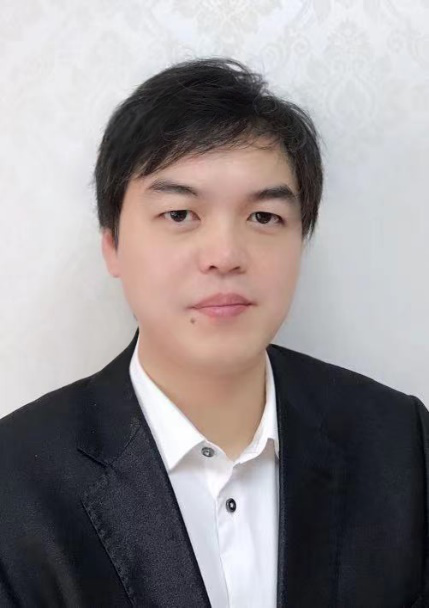 Bio: Li Tian is currently the Head of Standards Strategy Department of ZTE Corporation. He is actively involved in various global standardization organizations including 3GPP, ITU, IEEE, where he served as the rapporteur for several 5G related work items. His research interests are in the field of ICT technology, and his team contributed significantly to advanced technologies like radio access, AI/ML, future networks, video coding, automobile electronics, network security, etc. Dr. Tian received his B.Sc degree in 2009 and Ph.D degree in 2015, both in Tongji University, China. From 2013 to 2014, he was a visiting researcher in University of Bologna, Italy. He is the first author of a book and contributed to multiple book chapters, with over 50 academic papers published and over 100 patents held globally. Li served as the co-chair of IWCMC2020 workshop and keynote chair of WCNC2021, he has also delivered multiple keynotes in various academic and industrial events.
Bio: Li Tian is currently the Head of Standards Strategy Department of ZTE Corporation. He is actively involved in various global standardization organizations including 3GPP, ITU, IEEE, where he served as the rapporteur for several 5G related work items. His research interests are in the field of ICT technology, and his team contributed significantly to advanced technologies like radio access, AI/ML, future networks, video coding, automobile electronics, network security, etc. Dr. Tian received his B.Sc degree in 2009 and Ph.D degree in 2015, both in Tongji University, China. From 2013 to 2014, he was a visiting researcher in University of Bologna, Italy. He is the first author of a book and contributed to multiple book chapters, with over 50 academic papers published and over 100 patents held globally. Li served as the co-chair of IWCMC2020 workshop and keynote chair of WCNC2021, he has also delivered multiple keynotes in various academic and industrial events.
